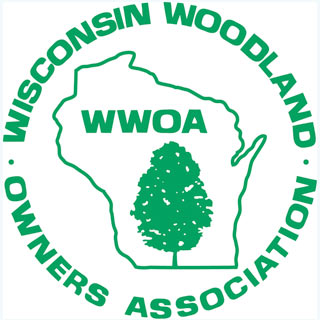Wisconsin Academy Announces 10 Forestry Recommendations to Fight Climate Change
The Wisconsin Academy of Sciences, Arts & Letters has identified ten key forestry recommendations that will offset the impact of climate change in Wisconsin. The recommendations are outlined in the newly released report, Wisconsin’s Forested Lands: Opportunities for Carbon Sequestration and Storage.
This report is part of the Wisconsin Academy’s Climate-Critical Lands project, a research initiative which looks at the potential for carbon storage in Wisconsin landscapes. The Academy’s Climate & Energy Team collaborated with researchers and specialists from around the state to develop the report and its recommendations.
“To create an insightful and actionable report, it was imperative that we listen to people with expertise but different perspectives,” said Wisconsin Academy Environmental Initiatives Director Lizzie Condon. “We spoke with foresters, experts who work on building codes, tax law, policy, economics, research, urban wood, and forest products. As a result, the ten recommendations are realistic and achievable for Wisconsin, economically beneficial to the state, and will help mitigate climate change.”
With 17 million acres of forested landcover comprising 46 percent of the total land area of the state, Wisconsin has significant opportunities for carbon sequestration, storage, and emissions reduction through forestry practices on public, Tribal, and private lands.
“It is clear that carbon emissions are the largest driver of climate change around the globe and reducing these emissions is still essential; but there are many other ways to help offset some emissions,” said Paul Koll, a forester with the Stockbridge-Munsee Community Band of Mohican Indians and a contributor to the Wisconsin Academy report. “Helping the forestry industry, one of the largest industries within the state, to become a major player in carbon sequestration and storage is one big step toward the solution.”
Two resounding themes emerged from the Academy’s collaborative research for Wisconsin’s Forested Lands: the need for clear guidance on how to increase carbon sequestration and storage through forestry practices, and the need for increased collaboration across sectors in order to achieve progress on climate change mitigation.
“Adopting the recommendations in this report will require true statewide commitment and collaboration across industries,” said Wisconsin Academy Executive Director Erika Monroe-Kane. “The Academy has acted as a convener for the Wisconsin Idea throughout its history, and we will continue to work with partners in forestry and related industries to move forward on these recommendations and improve life in Wisconsin.”
Visit https://www.wisconsinacademy.org/video/2022-climate-critical-lands-briefing to read the full report and watch the report briefing.
